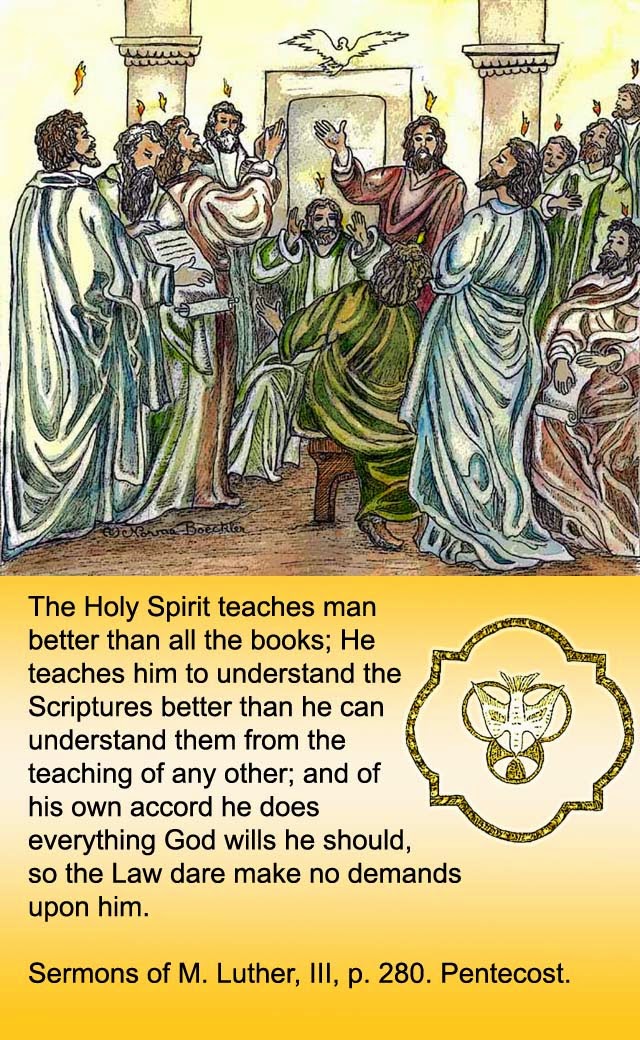Luther's Sermons -
Fifth Sunday after Trinity, Second Sermon. Concerning Faith, The Care of God, And Our Daily Occupation.
21. When Christ wished to bestow his gift upon Peter and others he did not cause the fish to leap into the boat without labor or nets, as he very well might have done. But he commanded them to put out into the deep and let down their nets. That is, they should engage in the handicraft they understood and had learnt and were accustomed to, and should act as fishermen. Christ keeps aloof from the lazy, unfaithful idlers who will not do as they have been commanded, and will not keep their hands and feet from straying. Thus he teaches a twofold lesson, that he will not give us anything unless we work for it, and that the things we obtain do not come from our work, but only from God’s help and blessing. You are to work, but you are not to depend upon that work, as if that which resulted therefrom were of your own accomplishment.
22. In short, our work produces and bestows nothing. Yet it is necessary as a means through which we may receive what God gives. The disciples must use their hands to let down the nets and to draw them in, if they wish to secure anything, and must be willing to do so. Yet they are obliged to acknowledge that their labor did not bring about the result, otherwise they would have succeeded, in the first place, without Christ. He therefore permits them to make a sufficient trial, and to discover by experience that the toil of this entire night has been in vain and to no purpose.
23. This he teaches us by daily experience in all sorts of affairs and doings and governments on earth. Very often he permits us to labor long and arduously and without results, till it becomes bitterly painful to us, and we are forced to complain with Peter: “We toiled all night, and took nothing.” This he does that we may not venture to depend upon our labor, but may know that he must grant it success, and that we have not secured this through our own effort, skill or diligence.
24. What diligence, money and effort many a father and mother have bestowed in order to rear their son to honor and virtue, and that with a hope and confidence as great as if (to use a common expression) he were to become an angel. And yet he has become nothing but a notoriously willful and prodigal child. On the other hand, many a poor and forlorn orphan, upon whom very little effort and diligence have been expended, has grown up so surprisingly well-bred as to make us think that it just happened so, and did not depend upon any diligence or care of our own.
 |
| Luther always connected faith with righteousness, as the Scriptures teach. |












.jpg)


























